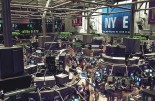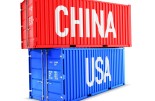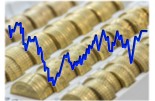Han Dieperink: Fiscal divergence
Han Dieperink: Fiscal divergence

This column was originally written in Dutch. This is an English translation.
It is not often that European and Chinese shares rise while American shares fall. This is largely determined by differences in taxation.
By Han Dieperink, written in a personal capacity.
At first glance, it seems logical to blame the US tariff war for the remarkable divergence in global stock markets this year. It also seems logical given the earlier euphoria in the US in contrast to the gloom surrounding Europe and China. Even the widely reported differences in valuations could be used to explain this movement. However, the divergence is mainly caused by developments in the fiscal arena.
For years, both the eurozone and China saved too much and consumed too little. As a result, both regions were forced to rely on exports. Under pressure from Donald Trump and Vladimir Putin, the next German government, led by Friedrich Merz, will invest a total of €1 trillion over the next 12 years. On an annual basis, this means 1% to 2% extra economic growth per year. Not everyone in the eurozone has the financial resources to follow Germany's lead, although the Netherlands, with its even better balance sheet, would probably be wise to do so. German investment will not only compensate for the lack of consumption in that country, but also for any US import tariffs. China is doing the same by increasing its budget deficit by 2 percentage points on a structural basis.
Exports from Europe and China were largely consumed in the United States, but this year the American government is putting the fiscal brakes on. Contrary to expectations, import tariffs are proving to be not only a method of forcing someone to the negotiating table, but also a means of generating revenue. In plain English, this is called raising taxes. But that's not all. DOGE is causing large groups of civil servants to lose their jobs. Immigration policy is also affecting final demand. Under Scott Bessent, the budget deficit must fall from more than 6% to 3% eventually. The US government does not even dare to rule out a recession. This fiscal brake in the US is being sold under the slogan ‘first the bitter, then the sweet’.
The big question for investors now is whether the years of underperformance of equities outside the United States have come to an end. These developments have clearly increased the chances of this happening, but there is still plenty to be desired. The European labour market is not flexible. Europe is far too generous as a welfare state and there are still more rules and regulations in Europe than anywhere else in the world. In addition to a more generous fiscal policy, Europe needs to stimulate the supply side of the economy in a structural manner. With a bit of luck, Trump and Argentina's Javier Milei, supported by the Draghi report, will bring about such a change, but reforms of this kind do not usually win votes. This time, change is being made possible by the combined threat of Trump and Putin. Everything else revolves around the dollar. The only period in which eurozone equities outperformed US equities was between 2002 and 2008. Moreover, it was the falling dollar against the euro that explained this outperformance. A weaker dollar could provide a boost again in the coming years. All thanks to this fiscal divergence.










